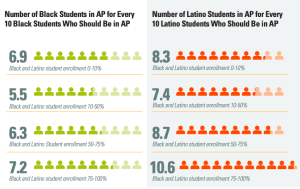Pro: Access to grades is a necessity at Masters
Many students feel that the lack of transparency concerning their grades hurts their overall academic performance. Two students, Tyler Hack and Russell Wohl, argue that each student should be able to view their performance daily.
December 30, 2020
Receiving cumulative grades just four times a year isn’t enough; Masters students need more transparency. While we shouldn’t be setting unrealistic expectations for grades, we should have a comprehensive understanding as to how (and why) we’re performing well before the final grades are released. Too often, however, students have no idea what their grades will be until the day grades are released at the end of each marking period.
Currently students receive inconsistent information regarding performance and progress which prevents them from being engaged in the overall process. Some teachers do hand out rubrics in the beginning of the year indicating how weighted each assignment is, however others may grade more subjectively. Students only learn their cumulative grades every semester, and receive an additional progress report each quarter.
The Masters’ website states that, “At Masters, teachers present students with possibilities and ask them to do the hard work of coming to their own conclusions.” While this may be a winning strategy during the classroom discussions that are Masters’ hallmark, the school seems to take this all too literally when it comes to grades. By giving students too little visibility into how their performance impacts their cumulative grades, students may feel as if it’s up to them to draw their own conclusions prior to the marking period. This is especially a problem in classes where tests aren’t a key determinant of grades. For example, some English classes rarely provide grades on written assignment, which means that many students don’t have a conclusive understanding as to how the feedback they receive translates into a grade.
In a survey of the student body about the grading system, of the 112 students who responded, 58% said the grades they received were “what they expected.” However, in a follow up question, 56% of respondents said they “weren’t satisfied with the information given by their teachers” prior to the release of grades. 89% of students surveyed said Masters should regularly give students access to grades; additionally, 86% expressed that this change would have a “greater impact on their overall performance.” Clearly, a majority of students feel our current system could be improved.
A good first step would be senior Russell Wohl and sophomore Tyler Hack’s proposed “Academic Transparency” bill in Executive Committee, which argues the importance of students having the ability to see assessment grades as well as a status for the classes calculating homework as part of the grade, including turned in and incomplete assignments, and feedback through the LMS gradebook. While not in the proposal, Hack also vocalized that fostering a system where a running grade is regularly accessible to students would improve academic transparency.
He said, “With only four [cumulative] grades in the school year, it is often hard for students to even know how they’re doing.” Should full access to grades be instituted, Hack said, anxiety could decrease among the student body.
According to the bill, “The Counseling Center reports an average increase in visits towards the end of each quarter. They[the counseling staff] explain that when we have more understanding about our grades, we are able to have more control over our stress, and it would thus be beneficial to have more clarity regarding grading methods.”
While it’s important to recognize the negative impact this new system could have on a student’s stress level, as seeing grades regularly may be intimidating, it would allow students to feel more aware, as they will be given the information to understand how to improve. The Counseling Center also suggested that allowing students access to a system where they could keep track of assignments would provide students with “responsibility over their progress,” emphasizing that the process is more important than any letter on a transcript.
At a school made up of very driven, resilient students, having access to grades regularly throughout the year would do more help than harm; having the ability to spot one’s weaknesses is so crucial to the success of a person way beyond high school, and for the future of our students, it is important that we start developing that skill sooner than later.



















